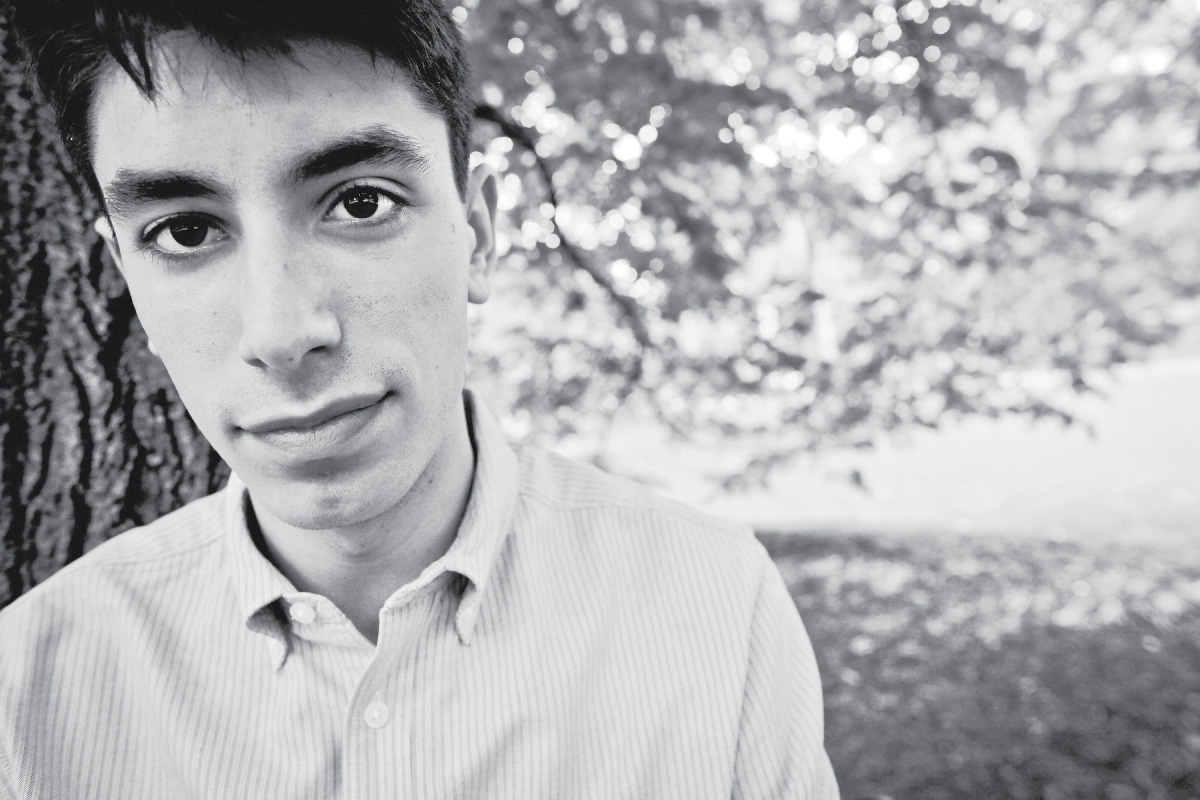Before college I had written only two poems—both while I was in the fifth grade the week after September 11. My parents like to remind me that on parents' night that fall, my fifth-grade teacher claimed that I was going to be the next Emily Dickinson. After such high praise, my shy ten-year-old self never wanted to write poetry again.
And I didn't—at least until Duke—and even then only by happenstance. Coming in as a freshman, I thought I was a terrible writer. I had gotten B’s in my English classes throughout high school, and I had long assumed that I was a math-science kid for whom writing was just another requirement. But my Writing 20 professor liked the work I turned in and encouraged me to keep at it.
One day, my freshman year, I remember having an urge to write a poem for the first time since childhood. I had just come upstairs after having picked up a book from the lowest level of Perkins Library. While I was down there, I had been overcome by the sense that I was walking in a book graveyard, that real human beings had spent their lives writing things that were never going to be read and that these books were limbo-lodged in the innards of mechanical bookshelves. I sat down to write.
I submitted that poem to The Archive, Duke’s undergraduate literary magazine, which published it. It wasn’t anything special as far as poems go, but I think that the seal of approval allowed me to think I could be a poet. Without that affirmation, I doubt I’d be writing poetry today. If I had gone to a school with many more accomplished poets, I’d never have gotten my poem published. I might have been too intimidated to even submit it.
I signed up for the intro to poetry workshop taught by Reynolds Price Professor of creative writing Nathaniel Mackey, and that was a damned good idea. The class textbook was The Norton Anthology of American Postmodern Poetry, and from that I learned about Robert Duncan, Denise Levertov, Robert Creeley, and many of my favorite poets. One day Nate picked out a poem of mine and said, with a particularly Zen nod, "This is good, Dan." Not long after that, I started reading a book of poetry every day, often picking them at random from the Carpenter Reading Room in Bostock. I tried to read poems in the midst of doing my homework so it would feel every bit as important as the rest of my schoolwork. By now, it sure does.
Because Duke wants to support writers and because Duke happens to have money to spend on visiting artists and lecturers, I've had opportunities to interact with famous authors I'd never otherwise meet. Colum McCann bought rounds of Irish whiskey for me at Durham’s James Joyce Irish Pub one night, and when it became obvious that I couldn’t keep up with him, he cut me off. I’ve introduced Amiri Baraka when he read here last year and later spoke with him about the future of jazz and Caribbean poetry. Most of my inspiration to keep writing has come from talking to writers who have made it and who have shown me that good things can happen with some talent and a lot of dedication.
Soon I became interested in other kinds of writing. I wrote a few short stories while studying in Paris for a summer. I began writing journalism for Recess, the arts section of The Chronicle, and for the first time felt like I was in a community of artists at Duke. Through my interest in writing, I’ve been fortunate to hold leadership positions—coeditor of The Archive and music editor for Recess—that are well beyond my wildest high-school dreams of what I’d do in college. Post-college my plan is to make a career out of writing arts journalism and to keep writing poetry on the side.
It’s still not easy to think of myself as a writer, though that’s probably how many Duke students see me. It still feels too new, like I’m faking something or somebody. I’m still surprised when professors like Fred Moten and Joe Donahue invite me to chat in their offices and that Professor Mackey agreed to guide me through a poetry thesis. I do feel, though, that, with a little luck and some help from Duke, I’ve started doing what I should have all along.
Originally from Westport, Connecticut, Fishman double-majored in philosophy and English and wrote honors theses in both areas. He won the Anne Flexner Award for Poetry and the Schutt Senior Award for Outstanding Contributions to Creative Writing.

Share your comments
Have an account?
Sign in to commentNo Account?
Email the editor